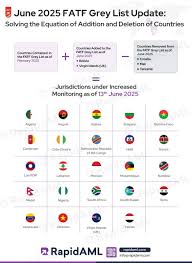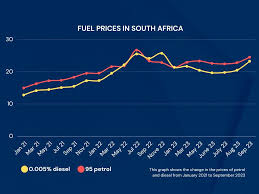Introduction
The Financial Action Task Force (FATF) grey list has become a significant topic of discussion in South Africa, especially after the country was added to this list in February 2023. This categorization indicates that South Africa is under increased scrutiny concerning anti-money laundering and combating the financing of terrorism (AML/CFT) standards. Understanding the implications of being on this list is crucial for the nation’s economy, international relations, and reputation on the global stage.
What Does the FATF Grey List Mean?
The FATF is an intergovernmental organization that works to combat money laundering, terrorist financing, and other related threats to the integrity of the international financial system. Countries that are placed on the grey list are recognized as having strategic deficiencies in their AML/CFT frameworks that need to be addressed. While being on this list does not impose formal sanctions, it raises concerns among international investors, lenders, and other trading partners.
Current Events and Developments
South Africa’s inclusion in the FATF grey list has led to significant discussions among policymakers, financial authorities, and businesses. The country is required to demonstrate that it is making adequate progress in addressing these deficiencies. The South African government has already initiated various measures, including strengthening its regulatory frameworks, enhancing compliance protocols, and improving coordination across law enforcement agencies. The National Treasury and other relevant departments have signaled their commitment to tackling these issues expeditiously.
In recent months, South Africa has hosted several workshops and conferences aiming to bolster cooperation among stakeholders. These measures include mobilizing resources to better detect and prevent money laundering risks, aiming to prove its compliance with FATF requirements is crucial not only for regaining a good standing but also for bolstering confidence in the economy.
Conclusion
The implications of being on the FATF grey list are profound, affecting both the perception of South Africa’s financial stability globally and the actual financial experiences of average citizens. Investors might be less inclined to invest in a country that has demonstrated weaknesses in its financial regulation, potentially leading to decreased foreign direct investment and slower economic growth. The South African government’s proactive measures will be key in addressing these concerns. If the country can successfully navigate its way off the grey list, it may facilitate an environment conducive to improved economic performance. The journey for South Africa is critical, and stakeholders must leverage every available resource to ensure compliance with international best practices.


